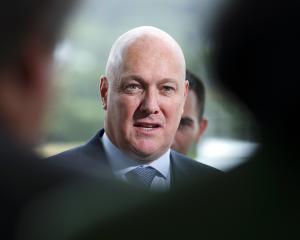Student loans have been a issue vexing politicians since the loans were introduced by National in 1992.
The loans continue to be a cause for political debate and are likely to remain that way for some time to come.
Labour leader Andrew Little has recently been releasing policy on the hoof, and his latest declaration seems to fit into the mould.
Labour, he says, is considering a policy which will see student debt reduced in exchange for people taking so-called public service jobs in the region.
The idea of bonding graduates to jobs is not new with New Zealand First leader Winston Peters promoting the concept about 20 years ago.
Then, doctors and nurses were in short supply on the West Coast, of South Island.
Medical graduates would have been encouraged to work on the West Coast in return for having some of their student loans wiped.
In 2011, Mr Peters signalled plans to write off student loans dollar-for-dollar repayments in exchange for graduates staying in the country.
He claimed then New Zealand was losing $6 billion and it would not get it back.
The way to get the money back was have students working in New Zealand and contributing through their taxes to the economy.
Prime Minister John Key dismissed the proposal by Mr Little, saying it is more important to build up regional jobs and infrastructure.
This is despite the Government setting up a similar bonding scheme for new graduates in health, teaching and veterinary science in 2009, with annual payments of more than $3000 going towards student loans.
Mr Little says the details are yet to be established but if people worked in a job outside the main cities for an agreed time, taxpayers may pick up the bill for some of their student loans.
It will be a major policy if Labour follows through and continues on from Labour’s pledge to fund three years of post-school study for every New Zealander without a previous tertiary qualification.
There is a real danger the debate about student loans becomes similar to the ongoing one about compulsory superannuation.
KiwiSaver was a start to helping people prepare for their own requirement but Mr Key’s Government changed the amount of money employers were required to put in, and also stopped contributing to the New Zealand Superannuation Fund established by former finance minister Sir Michael Cullen.
Since it was established, the Student Loan Scheme has had 10 changes.
Students owe about $14 billion, according to current figures.
Inland Revenue and the Government are actively seeking repayment of the loans from students who moved overseas for work and are not paying back their loans or interest accumulated.
People have been stopped at the border and made to work out a repayment schedule with IRD.
There is always an argument made for free education, but education is never free.
The $14 billion in debt proves that case.
Without some contribution to education, taxpayers will face higher tax rates and perhaps fewer social services as a result of higher education costs.
One of the most immediate problems for Labour is the decline in public sector jobs in New Zealand’s regions.
Otago is no exception with New Zealand Post, Invermay and other government departments downsizing their operations in the region.
Increasing the public sector workforce in regions is unlikely to happen, no matter how hard people try.
Going to university is not the only way to qualify for a job in the workforce and apprenticeships have become more popular as shortages in the building industry grow.
But even they come at a cost albeit with an almost certain job at the end of the course.
The encouraging part of Mr Little raising the issue of wiping out chunks of student loans is it being again openly debated.
By the election next year, it is possible some definitive policies on how the growing student debt should be dealt with will be on the table.












